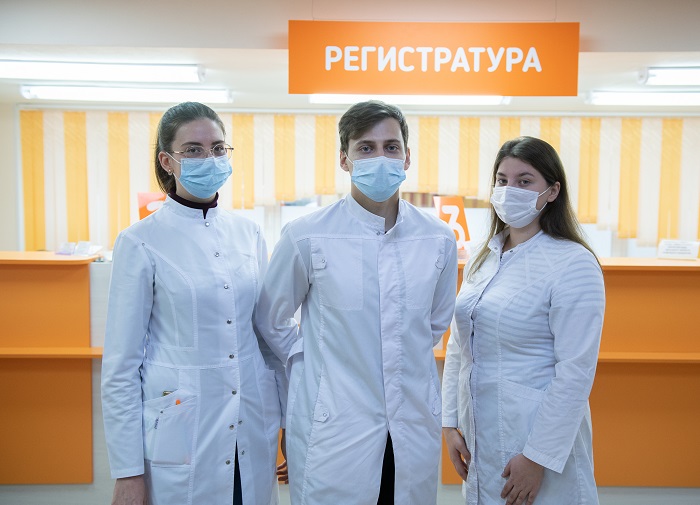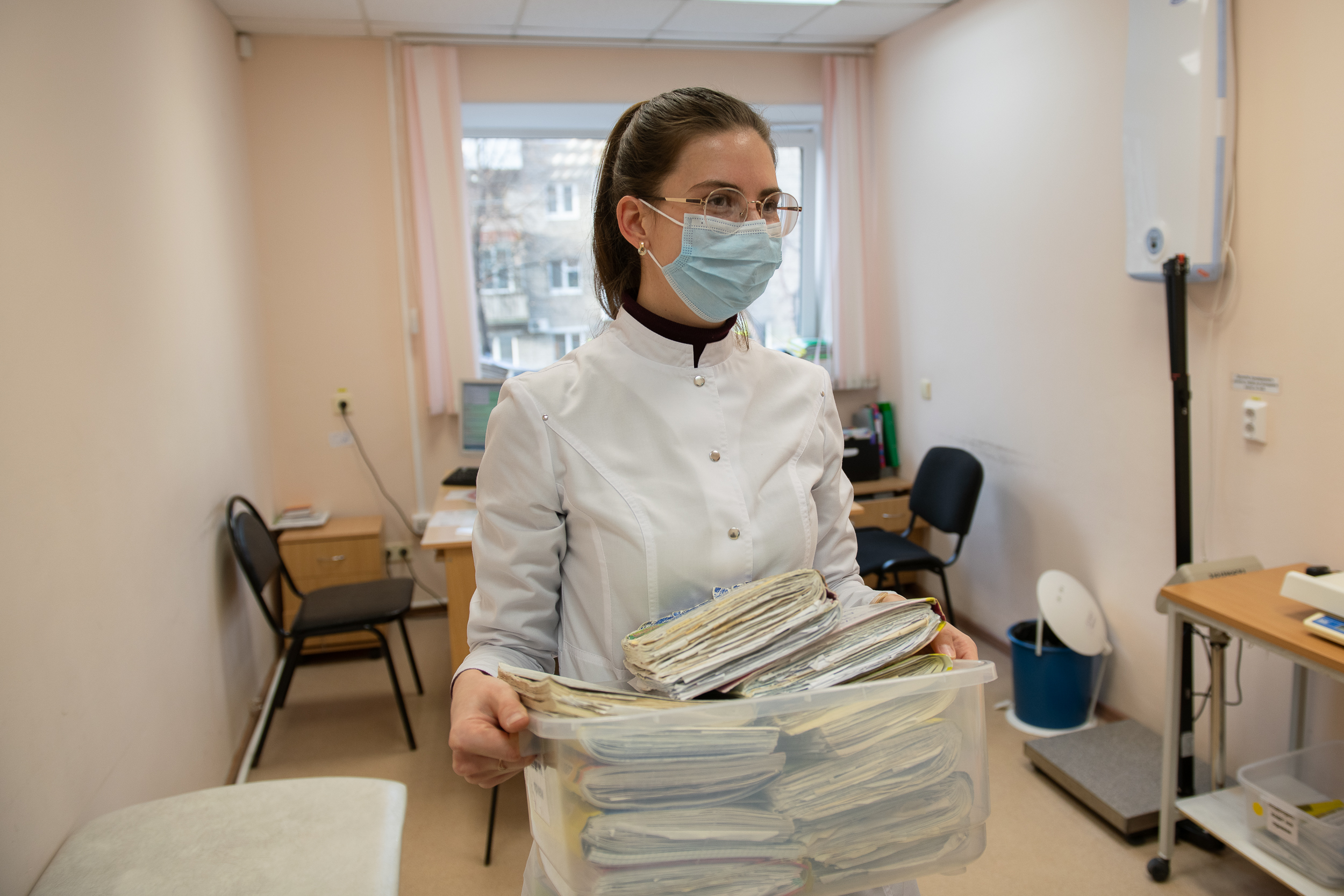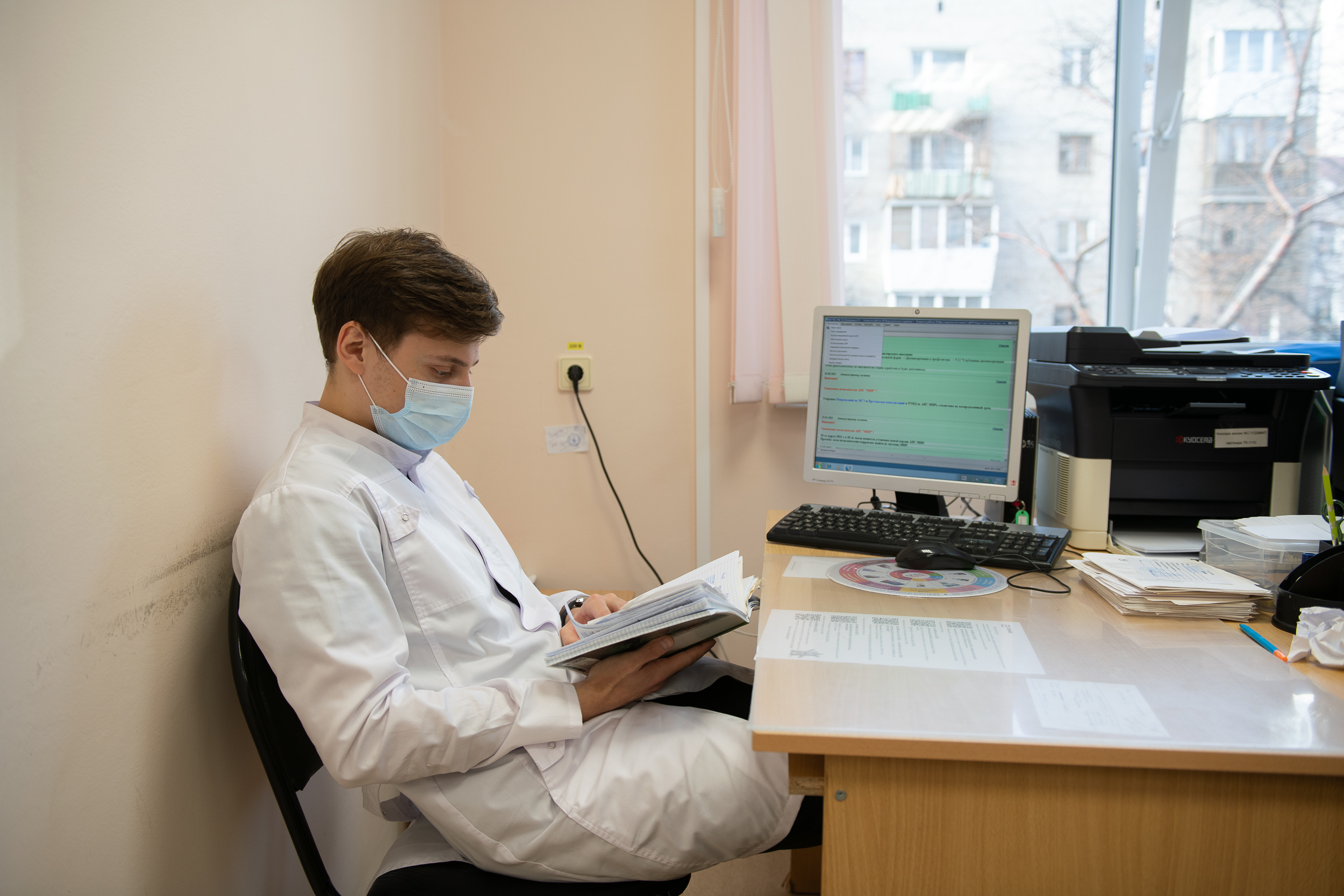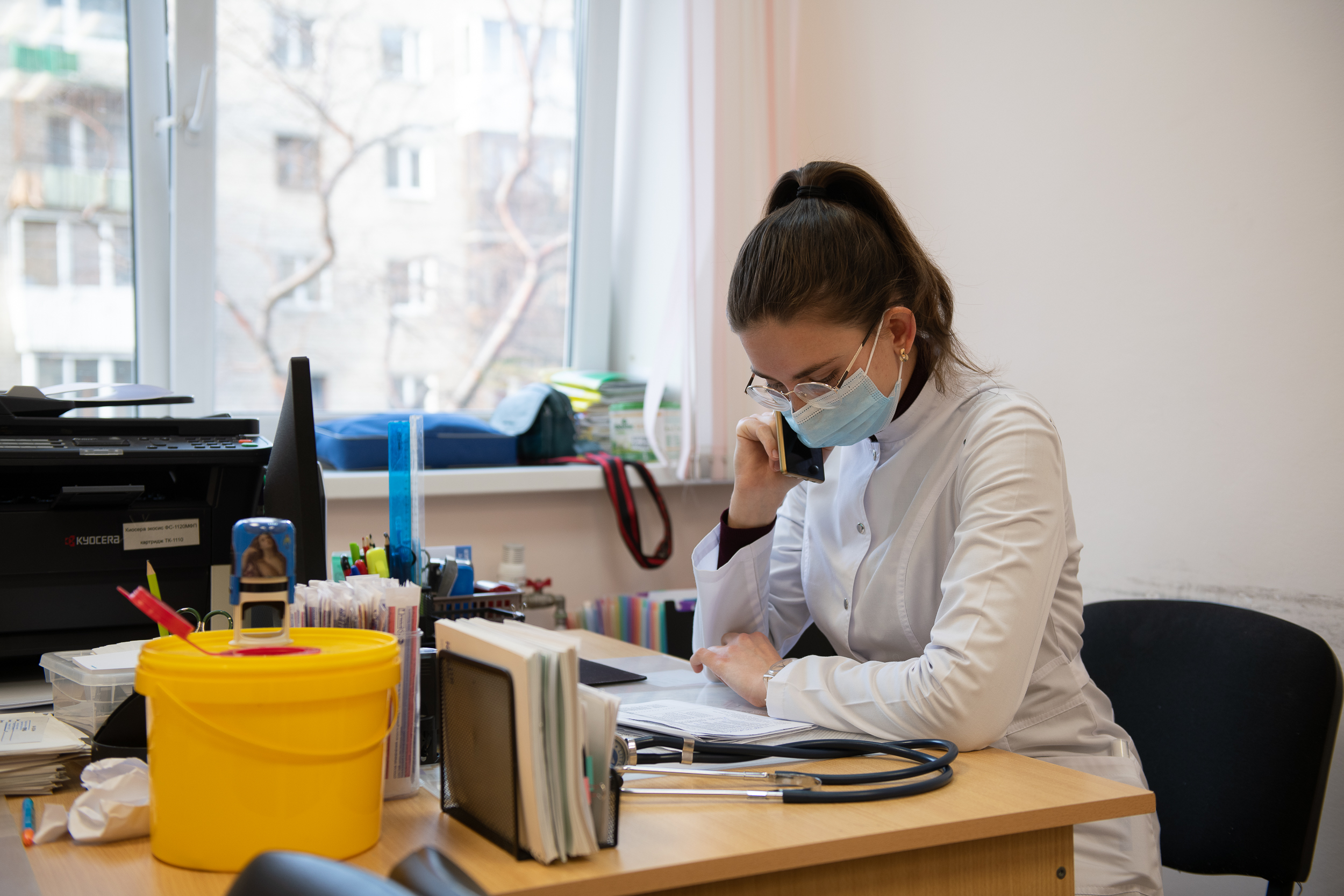
360 sixth-year students of the Ural State Medical University came to the aid of doctors in the clinics of Sverdlovsk region. This allows future doctors to gain practical experience while helping patients, and their senior colleagues to free up resources to activate vaccine prevention, which plays a key role in countering COVID-19.
To send senior students to hospitals for practical training is a recommendation that was previously given to medical universities of the country by the Ministry of Health of the Russian Federation. Due to a complex epidemiologic situation the healthcare system of Sverdlovsk region works under conditions of enormous workload, students of the medical and preventive and pediatric faculties of USMU were transferred to a combined training format. Today a part of the classes are holded remotely. But specialized disciplines can be mastered only through practical training at the clinical bases of the university including polyclinics.
“We help pediatricians, learn something new, examine patients, look at the documentation specification, track doctors’ appointments. We learn, learn and study once again. Any practical training is an invaluable experience in your subsequent work activity. This is the basis, the platform on which we will work. It is very important to get acquainted with this platform in practice and learn how to work not only in theory with children – with future patients, but also in real life, because the life of entire generations depends on us, pediatricians. The current situation is not easy, and indeed healthcare needs personnel. I think we are great help for doctors. And we will be proud to fulfill the duties entrusted to us, because these are our duties in the future”, Anna Libukhova, a 6th-year student of the pediatric faculty of USMA, who went to practice at the polyclinic of the Children’s Hospital № 9, says.
A 6th-year student of the pediatric faculty Galina Mitiushkina told that the main task in the medical institution was to help doctors in filling out medical documentation, in examinations of patients, in calling people who was quarantined.
“First of all, we are looking at the polyclinic work. Secondly, we learn to fill out certain medical documents, we examine children. We are already getting both the eye and the hand, we are learning practical activities. We watched how the emergency room worked, helped to examine children and fill out documents. After graduation it will be necessary, for example, to go to the site, and we are already getting acquainted with this activity in order to come ready. There are a lot of patients, the influx is large. We are trying to help some way. And we help. Because people will always be sick, children will always be sick. Everyone will always need a doctor, there is nothing technical to replace him”, she notices.
Maxim Petrov also a sixth-year student at the medical University says that he additionally asked his curators to send him to the ENT office. “This is my future specialty and today I help a doctor there. They allow me to do various manipulations that can be useful for me in the future”, medical student says.
Stella Burdakova, deputy head physician of the Children’s City Clinical Hospital №9 said that the students’ support, especially now, at the time of epidemic, was invaluable. Despite of the fact that the interns are not offered to go to the “red zones”. But they significantly strengthen other directions.
“We have a lot of contact children with COVID-19 cases. Thus, assistance in calling, in processing checklists for contact children or patients with coronavirus is very noticeable. In addition they help us with appointments. In six months the students will go into adulthood, most of them will come to the site. And this practice is a tremendous experience for them. First of all they contact with young patients. Also they learn to provide medical care from professional appointments to an examination, prescribing treatment. All our doctors are experienced, and there is a lot students can learn from them”, Stella Burdakova noticed.
Besides 360 students of USMA, 120 residents came to help the hospitals of the regional center. Also 165 high school seniors of USMA were voluntarily employed as nursing staff in the “red zones”.
Teachers try to choose convenient time for students to discuss online the clinical situations that future doctors face at the site. Educators are in constant contact with hospitals in the region.


